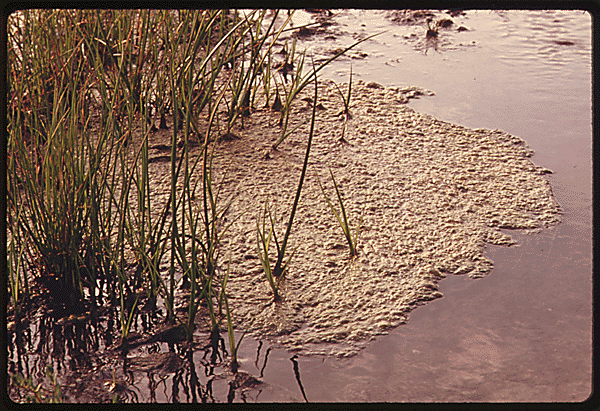Cleaning the Bay

We drink it, we use it to clean ourselves and our dishes, and we use it for irrigation and food production. Our survival and daily lives revolve around its use and availability. Water is the most important resource used by individuals in the world, yet despite all its value, water pollution and conservation are overlooked issues.
American University prides itself on being an environmentally aware campus and a leader in sustainable efforts.
“AU already uses many efficient water fixtures, such as faucets, toilets, and showerheads, but we are always looking for ways to do better,” said Emily Curley, a staffer in the AU Office of Sustainability. In order to see how AU can become more efficient, Facilities Management and the Office of Sustainability are working with the Dr. Kiho Kim and his University College (UC) Sustainable Earth program.
As a member of the UC Sustainable Earth program, I’ve been helping with the campus-wide water audit, checking the flow of every water fixture in the bathrooms and lounges. By doing this audit, we’re learning more about what we’re already doing well and how we can further advance our efforts.
The purpose of the water audit is to learn more about and call attention to the amount of water AU students go through each day. Curley explains that in a survey conducted by our student Green Eagles, “Sixty-seven percent of AU’s resident students took showers between 15 and 20 minutes long and 14% actually took showers longer than 20 minutes, Curley said nothing that figure is based on a survey conducted by the Green Eagles.
But that 20 minute shower takes a lot of water considering our showers have showerheads a flow rate of about 1.5 gallons per minute—30 gallons of water, in fact. That’s an absurdly large amount of water being used for just one shower. The water audit may just be a campus wide inventory of our water usage, but that water usage impacts our communities.
“Water is a critical resource here in the Chesapeake Bay watershed because our wastewater and sewage can contribute to pollution in the Bay,” Curley said. If we continue our current water usage, the Chesapeake Bay will get even dirtier and the environment will be hurt. By further reducing our water use, the Chesapeake Bay will be cleaner and healthier fish. Curley says more fish “means more jobs and more stable lifestyles for people who rely on the Bay for their livelihood.”
The Chesapeake Bay Foundation, an organization dedicated to enriching the pollution riddled Bay, does a yearly report of the Bay’s health by looking at its present levels of habitat, pollution, and fisheries, on a scale of 1-100. The Bay is up four points from 2008, a 10 percent improvement in less than five years,” according to the 2012 State of the Bay Report. While the ranking has increased 4 points since 2008, the Bay’s health currently at a grim 32/100.
“We have made progress, but much of the Bay and many local waterways don’t provide healthy habitat for fish, oysters, and other aquatic life,” said CBF President William C. Baker. “Pollution has cost thousands of jobs and continues to put human health at risk,” Baker said.
Our water-using habits have an impact on the bay’s health and while American University is able to make active decisions about using proficient, sustainable technology, it also takes thousands of students making responsible choices about their water usage.
Photo by The U.S. National Archives via Flickr











